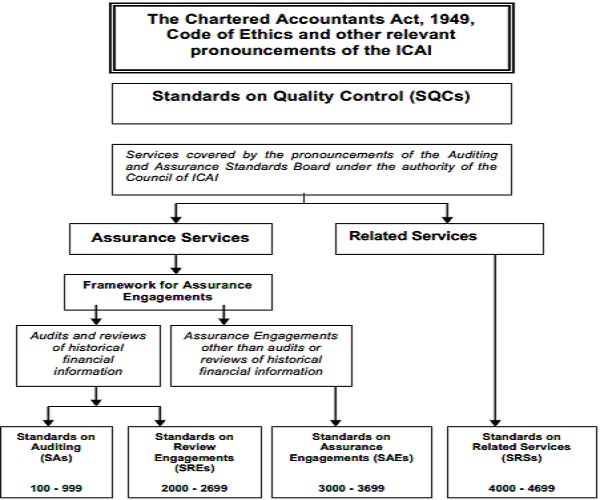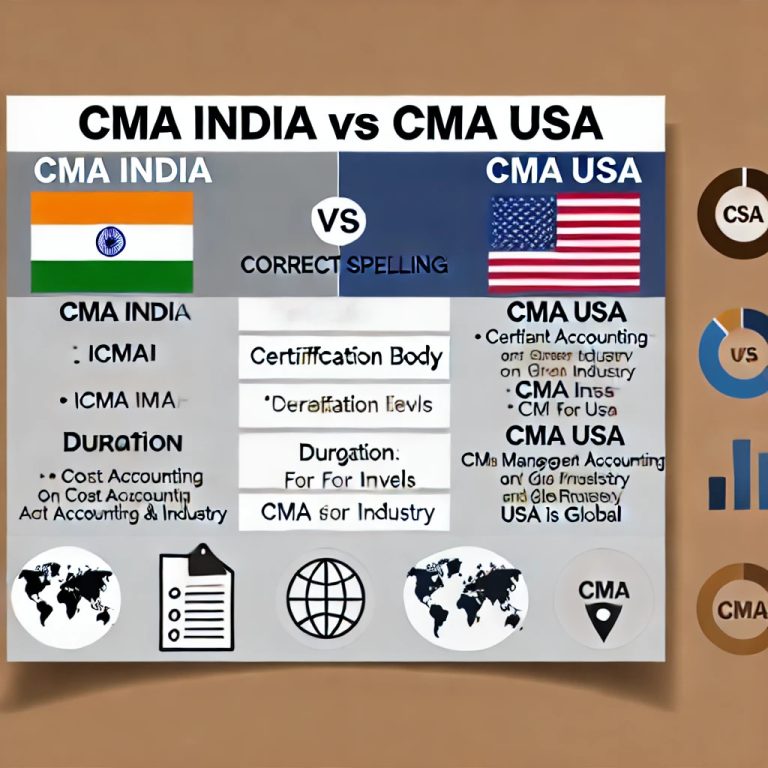CA vs CMA: If you’ve been following India’s finance and accounting world lately, you’ve probably seen headlines about CA vs CMA, and maybe you’re wondering what all the fuss is about. Well, buckle up, because this isn’t just a bunch of accountants arguing over coffee—this is a full-on turf war over who gets to do what when it comes to tax audits. And trust me, the outcome could shape careers, change laws, and affect how businesses handle compliance for years to come. At the center of the storm is the Institute of Chartered Accountants of India (ICAI), which recently scored a big win in the draft Income-Tax Bill, 2025. If passed in its current form, the bill would give Chartered Accountants exclusive rights to conduct tax audits—leaving Cost and Management Accountants (CMAs) and Company Secretaries (CSs) on the sidelines. This decision has sparked heated debates, emotional LinkedIn posts, and even formal protests from the other professional bodies.
CA vs CMA
The CA vs CMA debate over audit rights is more than just professional rivalry—it’s about the future of how India regulates its financial gatekeepers. With the Income-Tax Bill, 2025 potentially reshaping the audit landscape, both professionals and businesses need to adapt now. Whether you’re a CA ready to take on more audits, a CMA strategizing a pivot, or a business owner ensuring compliance, staying ahead of this change is the smart play.

| Key Point | Details | Official Link |
|---|---|---|
| Main Issue | New Income-Tax Bill, 2025 defines “accountant” as only a Chartered Accountant for tax audit purposes. | Official ICAI Site |
| Effective Date | April 1, 2026 (if passed). | Income Tax Department |
| Who’s Affected | CMAs and CSs lose eligibility for tax audits; CAs maintain exclusive rights. | The Finance Story Report |
| Audit Cap for CAs | Max 60 tax audits per partner/year from April 2026; penalties for violations. | Economic Times |
| Reason for Decision | EY curriculum review found CA training most relevant and in-depth for audits. | EY Global |
Why Is This a Big Deal?
Imagine if in the U.S., only CPAs could prepare certain IRS audit reports, and Enrolled Agents or Certified Management Accountants were told, “Sorry, you can’t do that anymore.” That’s basically what’s happening here in India.
The ICAI argued that its members have more intensive, audit-specific training. To back this up, a Lok Sabha Select Committee commissioned a study from Ernst & Young (EY), which compared the curricula of CAs, CMAs, and CSs. EY’s verdict? CAs get the deepest, most relevant audit prep.
This isn’t the first time professional boundaries have been tested. CMAs traditionally focus on cost audits, internal control systems, and performance evaluation, while CSs are experts in corporate governance and compliance. But in recent years, ICAI has been expanding into areas like GST audits and RERA audits—territories CMAs thought they could claim.
Historical Context – This Feud Isn’t New
The CA–CMA rivalry dates back decades. In the early 2000s, CMAs (then called Cost Accountants) pushed for equal rights in certain company audits under the Companies Act. ICAI resisted, citing quality concerns. Similar disputes flared up over tax return certification rights and transfer pricing reports.
Each time, the deciding factor has been lawmakers siding with whichever body they feel has stronger specialized training. This latest bill is just the newest chapter in a long, competitive history.
Breaking Down the New Tax Audit Rule
Here’s the simple version:
- Definition Change – The bill changes the legal definition of “accountant” to mean only a Chartered Accountant.
- Exclusive Audit Rights – This blocks CMAs and CSs from conducting tax audits under the Income Tax Act.
- Audit Limit – Even for CAs, each partner in a firm will be capped at 60 audits/year to maintain quality.
- Penalties – Violating the cap could lead to ICAI disciplinary action, fines, or even license suspension.
Think of it like the NBA saying, “Only point guards can shoot free throws”—and then also limiting how many free throws each player can take in a season.

Industry Reactions
- ICAI President Charanjot Singh Nanda told Economic Times, “Tax audits are our forte. It would be unfair to treat others as accountants for this purpose.”
- ICMAI leadership expressed disappointment, arguing CMAs also undergo rigorous training in financial reporting and compliance.
- Some corporate CFOs have said privately that the change will drive up audit costs because of reduced competition.
Impact on Students & Career Aspirants
If you’re a student thinking about becoming a CMA or CS, this bill could change your career path. While you’ll still have access to roles in consulting, cost audits, corporate compliance, and analytics, you’ll be shut out from one of the most visible and lucrative segments of accounting—tax audits.
If you’re a CA aspirant, the bill could make your qualification even more valuable, but competition within the profession will remain fierce, especially with the 60-audit cap pushing firms to hire more partners.
Case Study – A Mid-Sized Business Owner’s Dilemma
Ravi runs a manufacturing firm in Pune. For the last five years, he’s relied on his trusted CMA, Anjali, to handle everything from GST filings to tax audits. If this bill passes, Ravi will have to hire a CA for the tax audit while keeping Anjali for GST and cost accounting.
This means:
- Higher costs (two professionals instead of one).
- Extra coordination between audit teams.
- Adjustments in reporting formats to satisfy both.
Global Comparisons
- USA – Only CPAs can conduct audits for SEC-listed companies, but Enrolled Agents can represent clients before the IRS in tax matters.
- UK – Audit rights are granted to “registered auditors,” most of whom are CAs (ICAEW), but other bodies like ACCA also qualify.
- Australia – Registered company auditors must be members of an approved accounting body, not just one specific institute.
Compared to these, India’s proposed rule is more restrictive, granting exclusive rights to one body.

What Businesses Should Know About CA vs CMA?
If you run a company in India and rely on a CMA or CS for your tax audits, you’ll have to switch to a CA by April 1, 2026 if this bill passes unchanged.
That means:
- Reviewing your audit contracts now.
- Budgeting for potential fee changes.
- Keeping an eye on the official gazette notifications to confirm the final law text.
Practical Advice for Professionals
If you’re a CMA or CS, don’t just wait for the law to change—pivot your skills. Some ideas:
- Specialize in GST consulting – Businesses need help here all the time.
- Focus on management audits – You can offer cost optimization and process improvement.
- Partner with CAs – Build alliances so you still get part of the client work.
If you’re a CA, get ready for increased demand but also prepare for the 60-audit limit:
- Train junior partners to handle audits independently.
- Diversify into advisory services to offset the audit cap’s revenue ceiling.
India’s Tax Disputes Enter New Era as Govt Appoints Key Tribunal Members Nationwide
Is Your Alimony Taxable? What Every Divorced Husband and Wife in India Must Know Now
New Laws That Could Change India Forever? GST Ordinance & Anti-Doping Amendments Hit Lok Sabha










